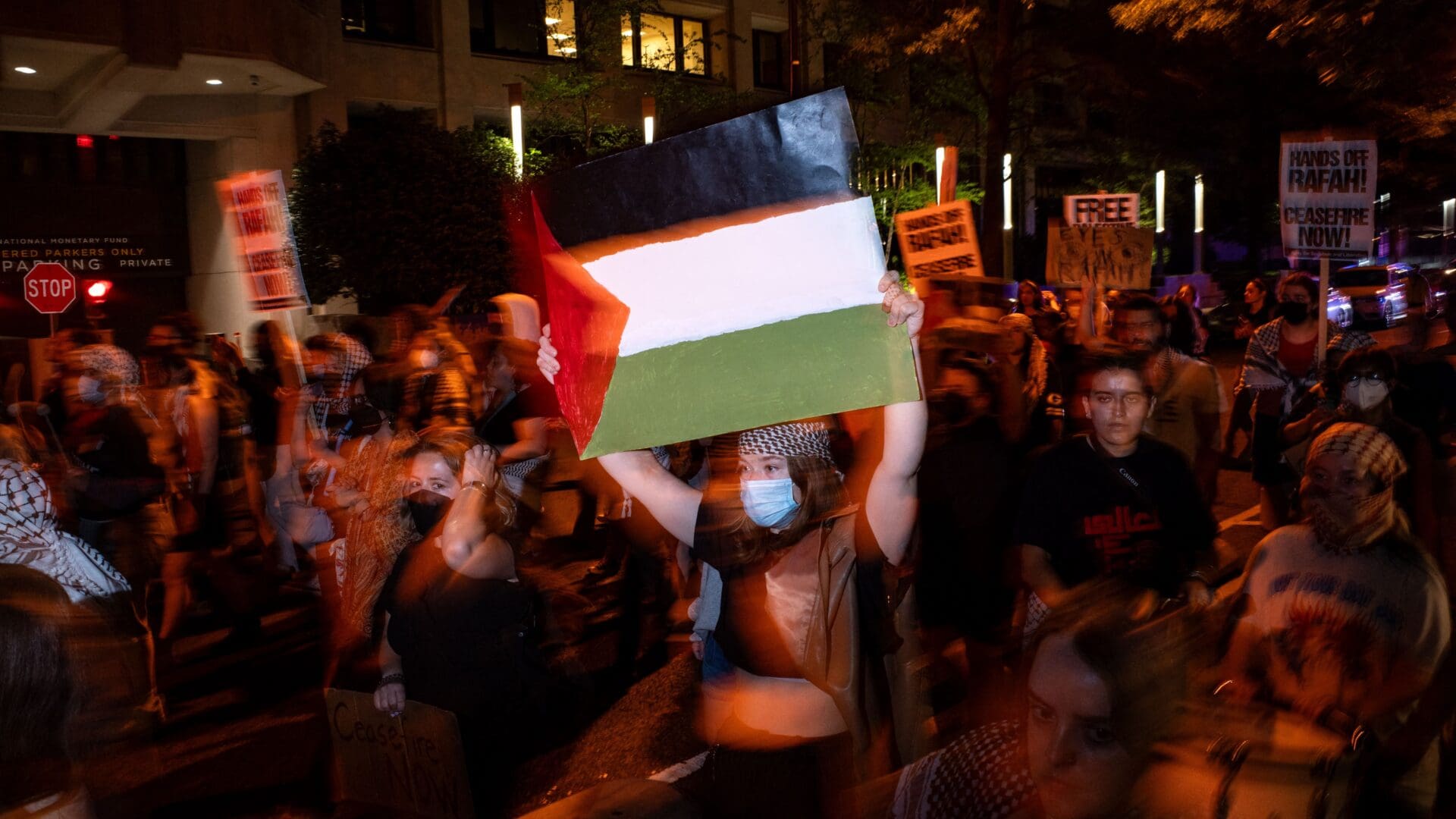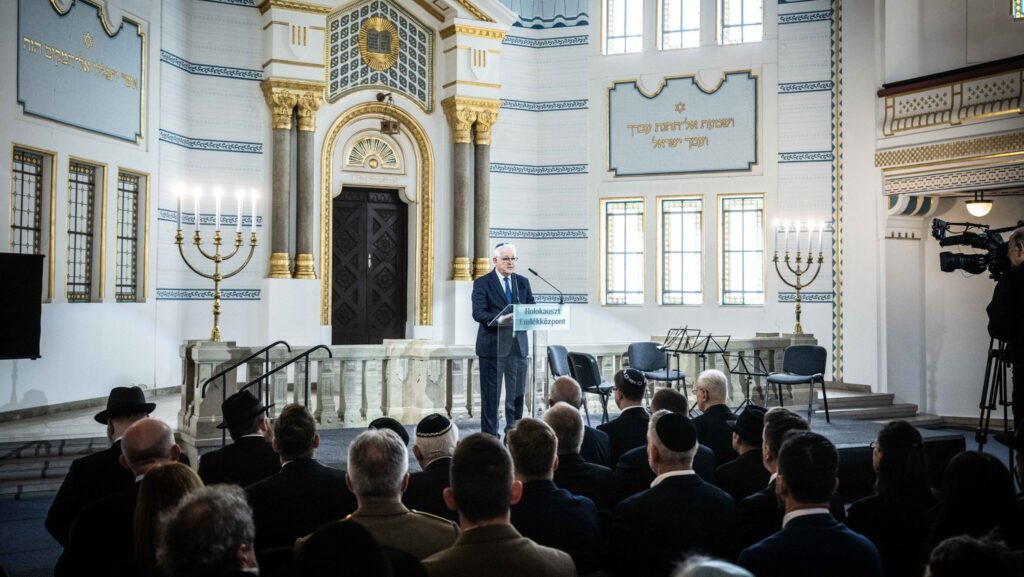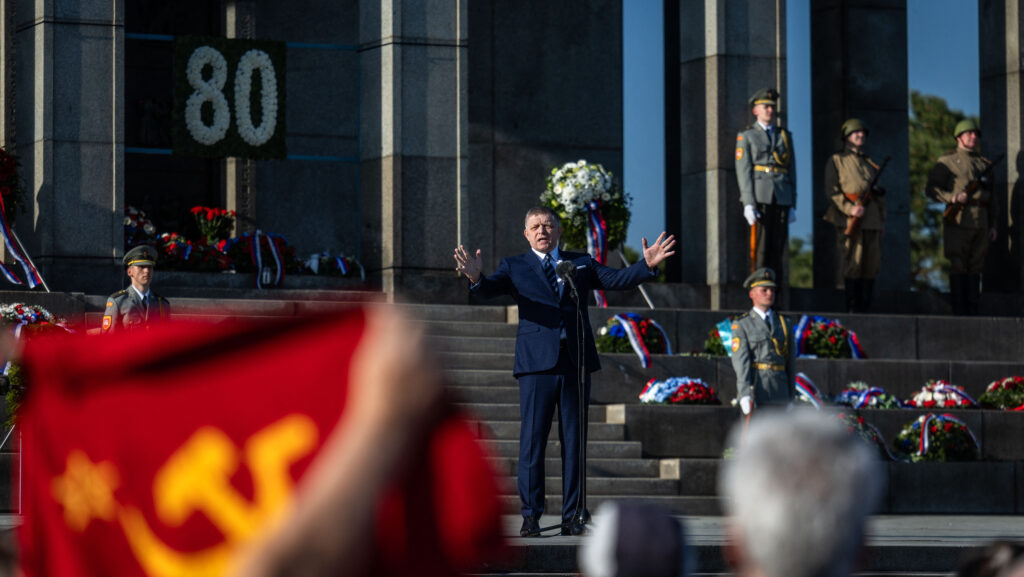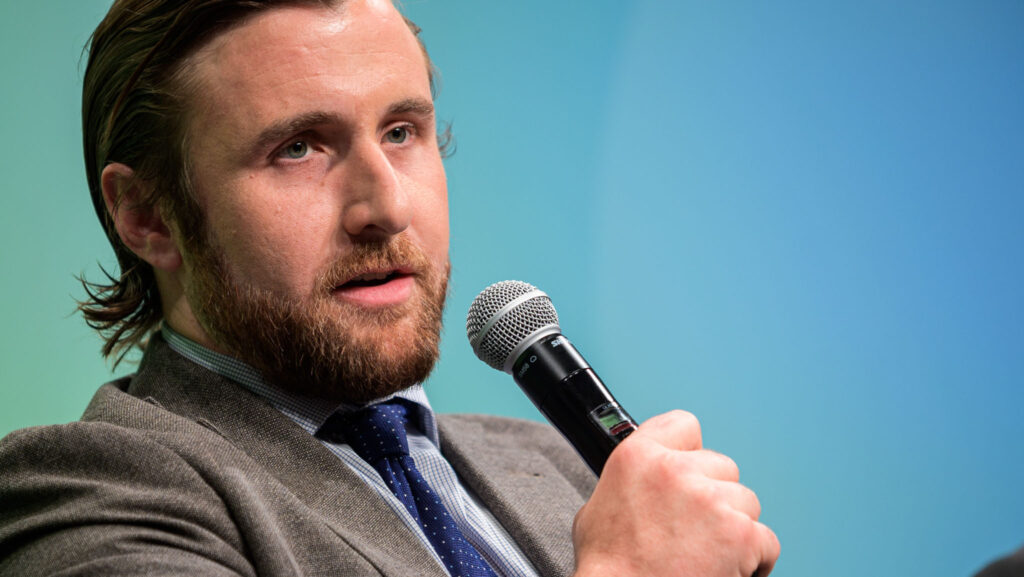If you believe a land is yours, you are free to attack it, terrorize its residents, and claim it. Looking at what is going on at U.S. campuses, that seems to be what Ivy League schools are teaching to their students today.
News about Ivy League school protests has been constantly in the media for weeks. Among other elite universities, an encampment was set up at the campus of Columbia in New York. The ‘occupied’ area was adorned with dozens of Palestinian flags and placards with slogans such as ‘real Americans stand with Gaza’, ‘demilitarize education’, and ‘there are no universities left in Gaza’, set against the backdrop of the cacophony of continuous ‘free Palestine’ chanting and drumming. As I saw with my own eyes, at Berkeley in California a similar encampment was set up in front of the office of undergraduate admissions, located right next to the general entrance area of the Berkeley campus. The pro-Palestinian students had placards saying: ‘Glory to the martyrs, victory to the resistance’.
As the reader may recall, senate members asked Ivy League school presidents if their institutions accepted this behaviour. In response, they all said something to the effect of ‘We embrace a commitment to free expression even for objectionable, offensive, and hateful views. Only when that speech crosses into conduct does it violate the policies against bullying and intimidation.’
It raises a lot of questions and concerns that such a topic can be handled in this manner at the highest-ranked universities. I agree that controversial thoughts, topics, and situations could be and should be discussed in such higher educational institutions. However,
these debates should happen in a safe classroom environment with an experienced moderator who can keep the conversation respectful and, most importantly, secure.
It is nothing like that in the schools that held pro-Palestine protests. Instead of a safe and secure environment, these schools are letting their students voice the most radical of views out in public, which has a chilling effect on not just the Jewish students and faculty, but on the majority of students. A Columbia student remarked: ‘Campus is full of hate and disagreement, and it is sad to see.’ A professor has also spoken up, stating: ‘I have seen antisemitic slurs being hurled at Jewish students, hate language written on walls in the middle of campus and posters hanging that have been very offensive.’
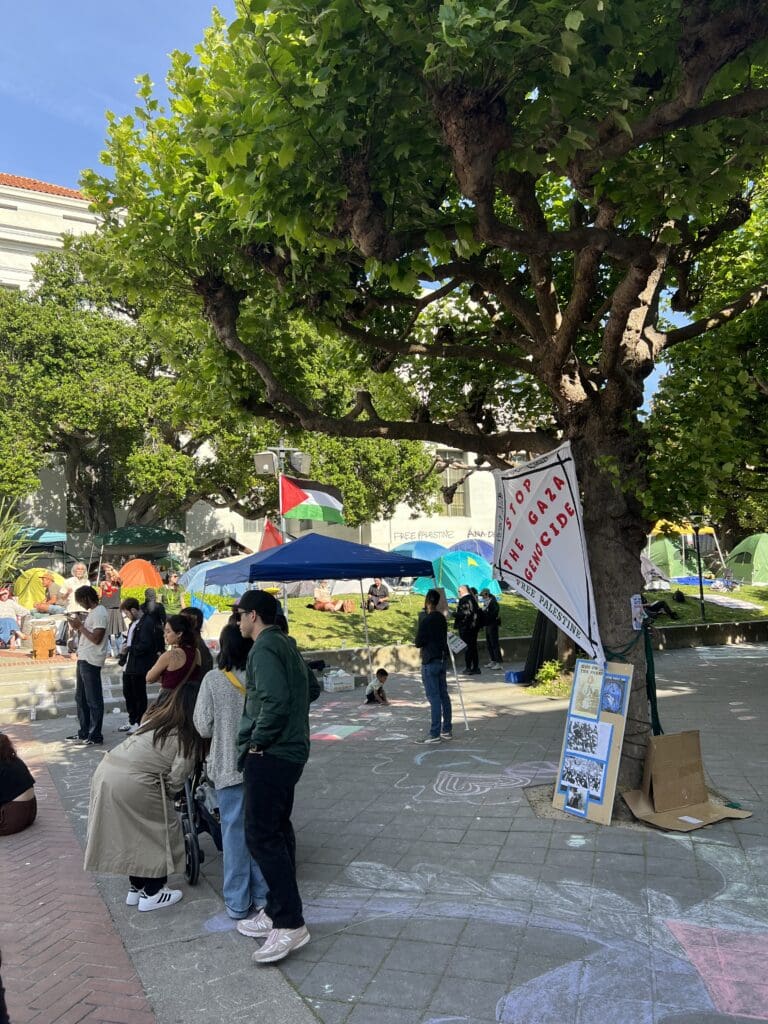
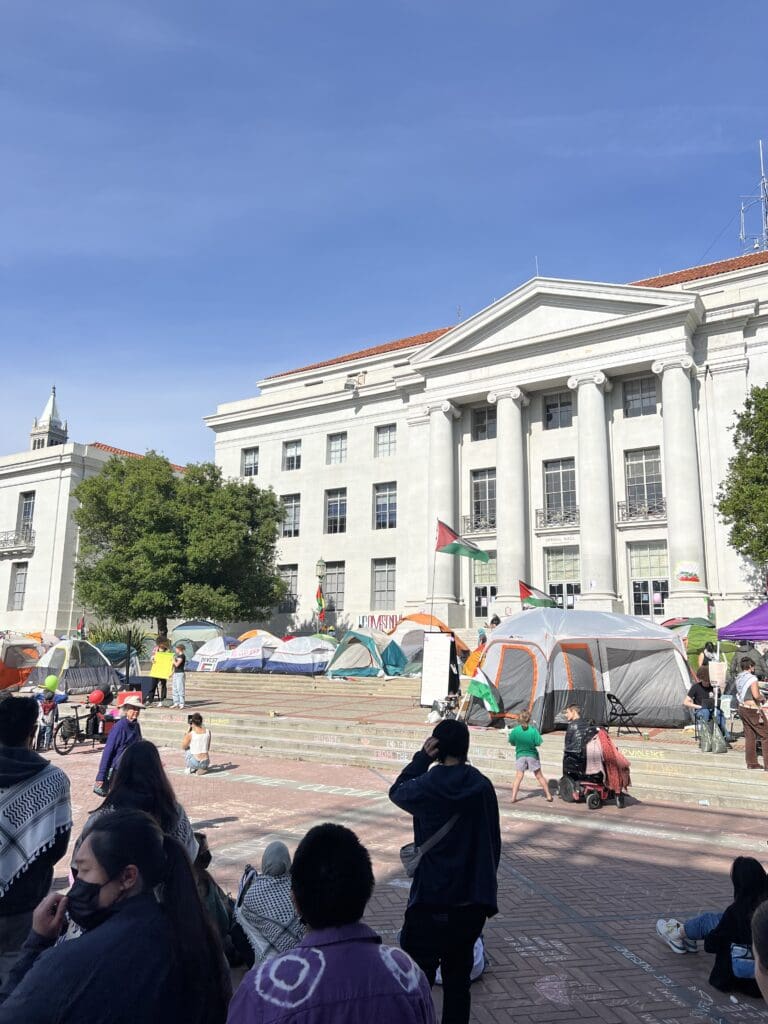
The situation in Columbia got so out of hand that state police had to be involved in breaking up the tent encampment. Interestingly, some thought that police intervention was unnecessary. Irine Mulvey, president of the American Association of University Professors, denounced the ‘crackdown on peaceful dissent’ and added: ‘Summoning armed police officers in order to silence debate and suppress speech that poses no genuine threat to campus safety is a danger to democracy.’ Peaceful dissent? Is it peaceful to chant intifada and set up placards like ‘glory to the martyrs, victory to the resistance’? The shutdown of the protest did not silence free speech. The institution, in fact, is required, by law, by Titles VI and IX, to immediately put an end to anything that involves racism, hate speech, discrimination, or harassment.
How did the U.S. become so polarized over Gaza? Why are university professors giving lectures on how the Israeli response is wrong and excessive, but the massacre of more than 1,000 innocent Jews is justifiable based on a false interpretation of history?
Horrible wars are going on right at this moment in the world, and no one in the West seems to care that much. Why does something happening in the Middle East make such repercussions and make emotions run this high in Western universities? What is the ‘secret appeal’ of taking the side of the Palestinians in the Israel–Hamas war that inspired so many students in Ivy League schools to go out and protest in the way they did?
May it be the case that it is the schools themselves that generate false narratives of the history behind this conflict
to manipulate students into an inevitable conclusion? If so, why? What is there to be gained?
I was a student-athlete at the University of South Carolina, being part of the Swimming & Diving team. I took multiple political classes, where we debated from liberal and conservative points of view, and articulated opposite opinions about certain political philosophies. I never once felt unsafe, because it was a respectful debate, as debates should be, despite the differing opinions and points of view.
This is what I consider freedom of speech: being able to communicate freely while respecting each other’s different opinions. Free speech should never be about making anybody feel threatened!
I had three Israeli teammates. They are still in the U.S., studying. They told me how uneasy and intimidated they feel every day, despite UofSC not allowing protests similar to those at Columbia or Berkeley. The swimming team also stands by them. I feel lucky that I could represent and swim and study at a university that knows the difference between free speech and hate speech. My heart goes out to my Israeli teammates who have to face the threat of radical pro-Palestinian students day after day.
A couple of weeks ago, I visited my former teammate, who now studies and trains at the University of California, Berkeley. I could see first-hand the protests, the placards, and the tent encampment.
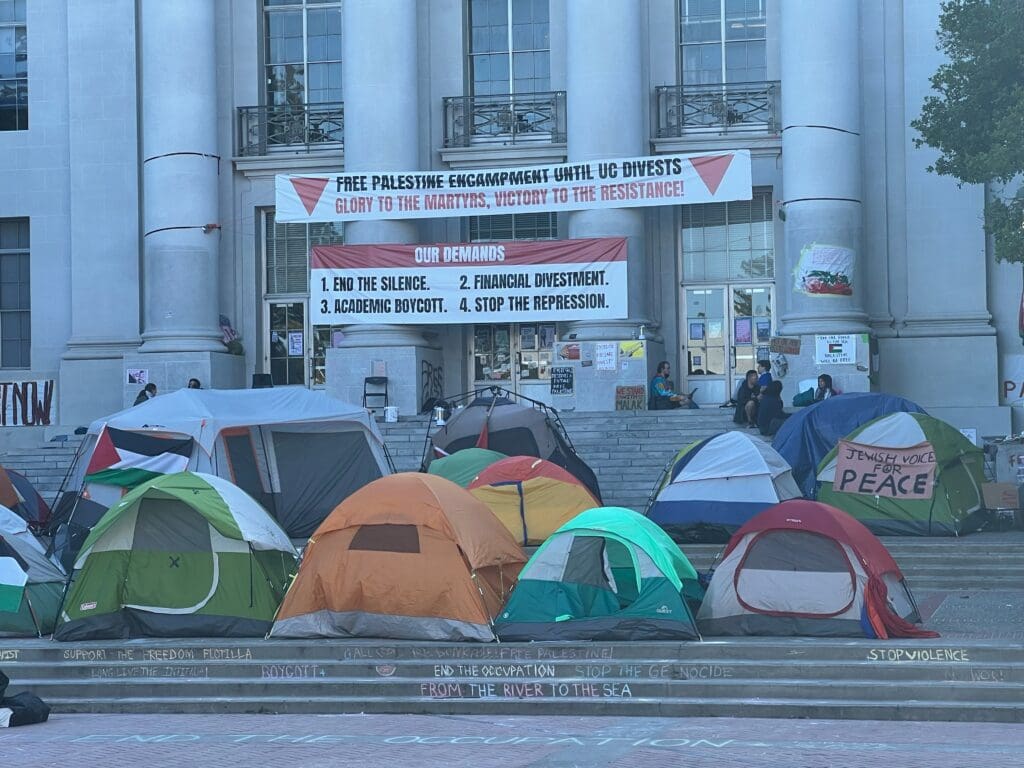
I tried to approach some protesting students at Berkeley and ask them about their motivation. Every single one of them either said they did not wish to comment or that they had nothing to say. I wondered: howe come you are protesting for something you can’t even talk about coherently? Or if you do not have the courage to speak your mind, why are you in a protest in the first place?
The Middle East conflict is a complex and deeply divisive issue, and we cannot confidently point out whether A or B is right in a given situation. People have different perspectives based on their understanding of history, law, human rights, and geopolitics, according to the information they have or have been fed. But what is worrisome is that it is unclear whether those protesting support the idea of the right to the land, or just the civilians of the Gaza Strip, or they want the war to continue, or to end. There seems to be no clear purpose of the pro-Palestine campus protests—if not the intimidation and harrassment of the Jewish students and teachers. And that is despicable.

